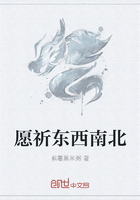In the nature of the soul is the compensation for the inequalities of condition. The radical tragedy of nature seems to be the distinction of More and Less. How can Less not feel the pain; how not feel indignation or malevolence towards More? Look at those who have less faculty, and one feels sad, and knows not well what to make of it. He almost shuns their eye; he fears they will upbraid God. What should they do? It seems a great injustice. But see the facts nearly, and these mountainous inequalities vanish. Love reduces them, as the sun melts the iceberg in the sea. The heart and soul of all men being one, this bitterness of _His_ and _Mine_ ceases. His is mine. I am my brother, and my brother is me. If I feel overshadowed and outdone by great neighbours, I can yet love; I can still receive; and he that loveth maketh his own the grandeur he loves. Thereby I make the discovery that my brother is my guardian, acting for me with the friendliest designs, and the estate I so admired and envied is my own. It is the nature of the soul to appropriate all things. Jesus and Shakspeare are fragments of the soul, and by love I conquer and incorporate them in my own conscious domain. His virtue, -- is not that mine? His wit, -- if it cannot be made mine, it is not wit.
Such, also, is the natural history of calamity. The changes which break up at short intervals the prosperity of men are advertisements of a nature whose law is growth. Every soul is by this intrinsic necessity quitting its whole system of things, its friends, and home, and laws, and faith, as the shell-fish crawls out of its beautiful but stony case, because it no longer admits of its growth, and slowly forms a new house. In proportion to the vigor of the individual, these revolutions are frequent, until in some happier mind they are incessant, and all worldly relations hang very loosely about him, becoming, as it were, a transparent fluid membrane through which the living form is seen, and not, as in most men, an indurated heterogeneous fabric of many dates, and of no settled character in which the man is imprisoned. Then there can be enlargement, and the man of to-day scarcely recognizes the man of yesterday. And such should be the outward biography of man in time, a putting off of dead circumstances day by day, as he renews his raiment day by day. But to us, in our lapsed estate, resting, not advancing, resisting, not cooperating with the divine expansion, this growth comes by shocks.
We cannot part with our friends. We cannot let our angels go.
We do not see that they only go out, that archangels may come in. We are idolaters of the old. We do not believe in the riches of the soul, in its proper eternity and omnipresence. We do not believe there is any force in to-day to rival or recreate that beautiful yesterday. We linger in the ruins of the old tent, where once we had bread and shelter and organs, nor believe that the spirit can feed, cover, and nerve us again. We cannot again find aught so dear, so sweet, so graceful. But we sit and weep in vain. The voice of the Almighty saith, `Up and onward for evermore!' We cannot stay amid the ruins. Neither will we rely on the new; and so we walk ever with reverted eyes, like those monsters who look backwards.
And yet the compensations of calamity are made apparent to the understanding also, after long intervals of time. A fever, a mutilation, a cruel disappointment, a loss of wealth, a loss of friends, seems at the moment unpaid loss, and unpayable. But the sure years reveal the deep remedial force that underlies all facts.
The death of a dear friend, wife, brother, lover, which seemed nothing but privation, somewhat later assumes the aspect of a guide or genius; for it commonly operates revolutions in our way of life, terminates an epoch of infancy or of youth which was waiting to be closed, breaks up a wonted occupation, or a household, or style of living, and allows the formation of new ones more friendly to the growth of character. It permits or constrains the formation of new acquaintances, and the reception of new influences that prove of the first importance to the next years; and the man or woman who would have remained a sunny garden-flower, with no room for its roots and too much sunshine for its head, by the falling of the walls and the neglect of the gardener, is made the banian of the forest, yielding shade and fruit to wide neighbourhoods of men.















